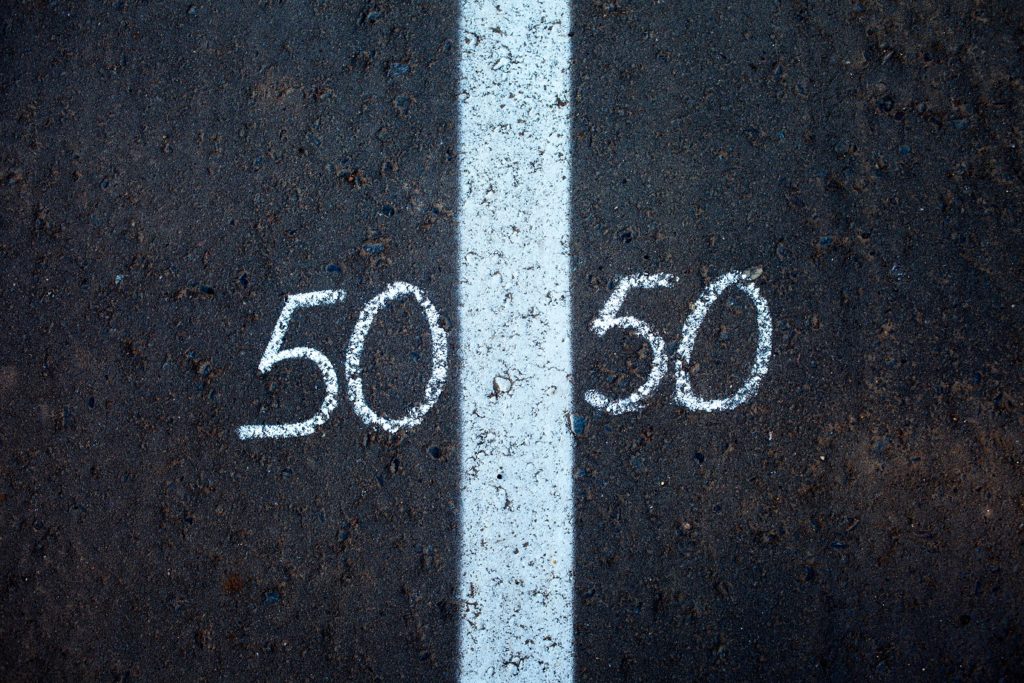Australia has once again slipped backwards on the Global Gender Gap Index, with the World Economic Forum ranking Australia at number 50 out of 156 countries.
In 2006, Australia was ranked 15th on the gender equality index, which means there has been a massive drop in progress towards gender equality in Australia over the last 15 years. Australia has also come in six places lower than last year, a reflection of the dire impact the COVID-19 pandemic has had on women in Australia.
Australia has fallen behind in every major dimension measured by the Global Gender Gap Index, except for educational attainment for women, where Australia has maintained its number 1 ranking.
Compared to 2006 levels, in 2021 Australia fell from 12th to 70th in economic participation and opportunity, from 57th to 99th in health and survival, and from 32nd to 54th in political empowerment.
With an overall ranking of 50, Australia sits between Georgia at number 49, and Suriname at number 51. We sit well behind the United States, which comes in at number 30, Canada, which is ranked 24th, the UK at 23rd, France at 16th, South Africa at 18th and Mexico at 34th.
With Australia’s top ranking for women’s educational attainment, there is a stark disconnect with the back slide in women’s economic participation. In 15 years, Australia has dropped a massive 58 spots on this dimension and is now sitting at a lowly 70th rank. According to the index, ‘economic participation and opportunity’ includes women’s labour force participation rate, wage equality, earned income, the number of women in managerial positions, and the amount of professional or technical workers.
The report from the World Economic Forum says the pandemic has had a much more negative impact on men than women, with women tending to lose jobs at a higher rate and being more likely to be burdened with child care, domestic responsibilities, and elder care. This contributed to high levels of stress for women and lower levels of productivity.
Senator Larissa Waters said Australia’s ranking was a damning reflection of the government’s failure to take action to improve women’s lives.
“We should be proud that we remain global leaders in educational parity, but there is no excuse for the growing gender gap in Australia’s economic opportunities, health outcomes and political empowerment,” Senator Waters said.
“If the PM’s new ‘women’s taskforce’ needed any reminding of the massive task they have ahead of them to ensure women’s safety and economic security, here it is.”
Senator Waters said we need immediate action from the government to reverse Australia’s declining position on the global gender gap index.
“The government needs to implement the Respect@Work recommendations; legislate to end the gender pay gap and extend the remit of the Workplace Gender Equality Agency; make early childhood education free; fix paid parental leave; and make it easier for businesses to implement flexible working arrangements,” she said.
“Australia’s gender pay gap remains over 13% and, on current trajectories, won’t be eliminated for 25 years. This gap is seeing survivors of family violence stay in abusive relationships to avoid homelessness, and more and more women retire into poverty.”
The Global Gender Gap Index benchmarks 156 countries against four key dimensions – economic participation and opportunity, educational attainment, health and survival and political empowerment – and then tracks each country’s progress over time. It’s first report was produced fifteen years ago in 2006.
This year, it was calculated it will take 135.6 years to eliminate gender inequality globally, an increase from 99.5 years. That’s an entire generation that has lost progress towards gender equality during the pandemic.
The global gender gap in political empowerment remains the largest of the four gaps tracked, followed by economic participation and opportunity.
“The pandemic has fundamentally impacted gender equality in both the workplace and the home, rolling back years of progress,” said Saadia Zahidi, Managing Director of the World Economic Forum.
“If we want a dynamic future economy, it is vital for women to be represented in the jobs of tomorrow. Now, more than ever, it is crucial to focus leadership attention, commit to firm targets and mobilize resources. This is the moment to embed gender parity by design into the recovery.
For the 12th consecutive year, Iceland has topped the global ranking as the most gender equal country in the world. Iceland is followed by other Nordic countries Finland and Norway, and then New Zealand, Sweden, Nambia, Rwanda, Lithuania, Ireland and Switzerland.


